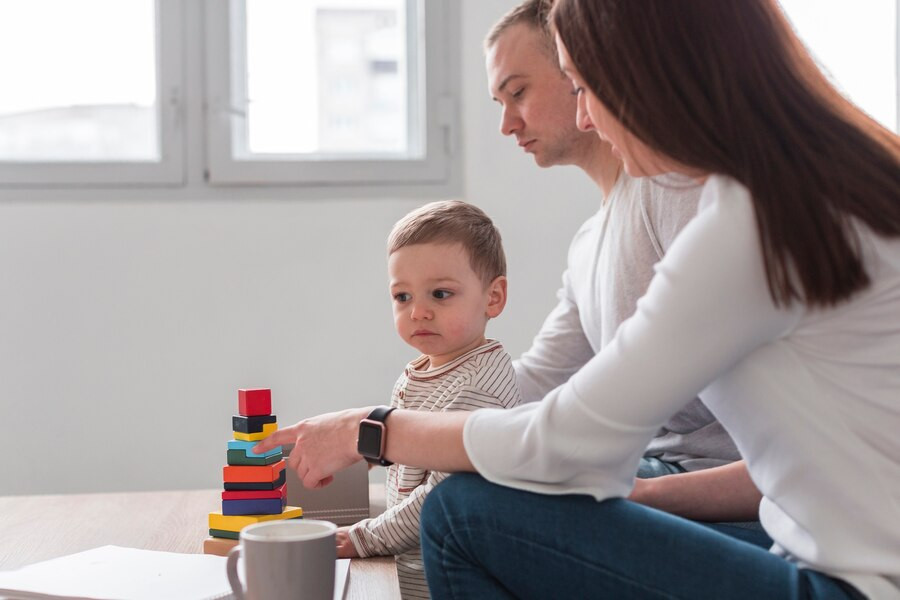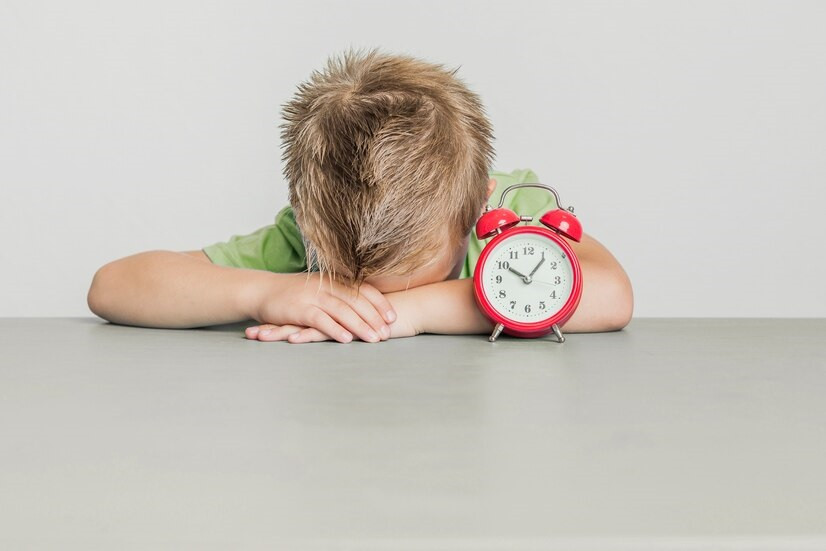As a parent, it's crucial to recognize the signs of illness in children. While some signs may appear mild, others may require more attention as they could be early indicators of a more serious health issue.
Signs of illness in children that shouldn't be overlooked
Here’s a list of symptoms of the disease that warrant your attention and careful observation:
- Baby does not respond to loud noises
Hearing screening is typically conducted for newborn babies. If this isn't provided at the hospital, it's advisable to arrange a screening within the first 3 weeks of life.
Newborns who don't pass the initial screening will undergo a retest at 3 months old. If a hearing issue is confirmed, treatment is recommended before 6 months of age.
Normally, newborns react to loud sounds by startling. If your baby doesn't exhibit this response, it's wise to seek evaluation by a specialist.
- Signs of hearing problem
Hearing loss can result from genetic factors or develop over time as a child grows. Symptoms to watch for include slurred speech, difficulty hearing soft sounds, a lack of response to sounds, delayed language development, and speech difficulties.
It's important to have your child undergo a hearing test to diagnose the extent of hearing loss and its severity.
- Difficulty in Focusing
Babies can't communicate if they have vision problems or blurry vision. You can assess their vision by observing how they focus on objects.
An 8-week-old baby should be able to hold their gaze on faces, like those of parents or caregivers. If you notice the baby isn't focusing or shifting their gaze frequently, it's advisable to have them examined by a doctor.
- High fever and severe headache
Fever is common in children and is often not a cause for concern. However, a high fever coupled with a headache could signal a more serious issue.
A high fever and severe headache could be signs of meningitis, an infection affecting the brain and spinal cord membranes.
Viral meningitis is typically less severe, while bacterial meningitis can be more serious, potentially leading to long-term complications and even death.
- Abdominal pain
Abdominal pain is a common symptom in children. It could indicate a serious medical condition if it's accompanied by diarrhea, a soft abdomen when pressed, severe pain in the upper right abdomen, or if symptoms persist despite home care.
- Fatigue
Fatigue in children should not be ignored. Severe fatigue can have many causes, including insomnia, sleep apnea, narcolepsy, asthma, the Epstein-Barr virus, hypothyroidism, hormonal disorders, anemia, heart disease, and depression.
It is important for parents to bring their children in for a check-up if they often appear to be severely tired.
In addition to the above symptoms, you should also be aware if your child has difficulty breathing, weight loss from an unknown cause, or severe thirst.
If you need medical advice or consultation, you can either visit a doctor or make use of the consultation features that are available in the Ai Care application by downloading the Ai Care application from the App Store or Play Store.
Looking for more information about pregnancy, breastfeeding, and the health of women and children? Click here!
- Sean Edbert Lim, MBBS
Healthline (2019). Children’s Health Symptoms You Shouldn’t Ignore. Available from: https://www.healthline.com/health/childrens-health-symptoms
KidsHealth (2021). How Will I Know if My Child Has Trouble Hearing?. Available from: https://kidshealth.org/en/parents/trouble-hearing.html
John Hopkins Medicine. Hearing Loss in Children. Available from: https://www.hopkinsmedicine.org/health/conditions-and-diseases/hearing-loss/hearing-loss-in-children
Rachel Ann Tee-Melegrito (2022). What to know about vision problems in babies. Available from: https://www.medicalnewstoday.com/articles/signs-of-vision-problems-in-babies
Kids Health (2022). Fever (High Temperature) In Kids. Available from: https://kidshealth.org/en/parents/fever.html
Claire McCarthy, MD (2022). 8 things to watch for when your child has a headache. Available from: https://www.health.harvard.edu/blog/8-things-to-watch-for-when-your-child-has-a-headache-2017051611761
Stanford Medicine. Meningitis in Children. Available from: https://www.stanfordchildrens.org/en/topic/default?id=meningitis-in-children-90-P02528
Minesh Khatri, MD (2023). Why Is My Child So Tired?. Available from: https://www.webmd.com/children/tired-child











